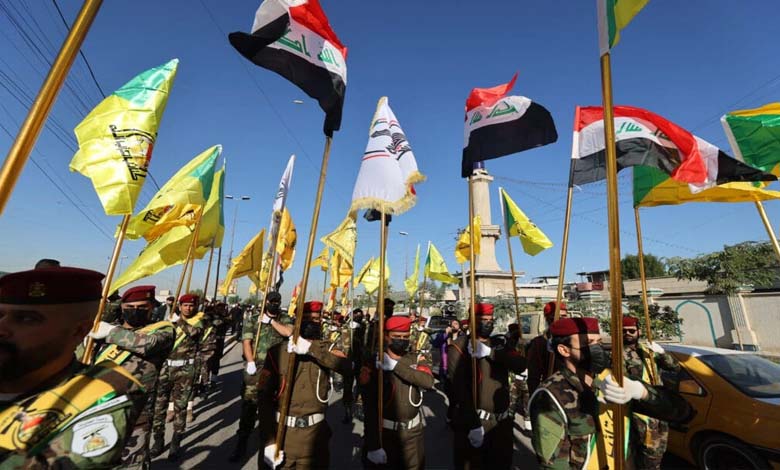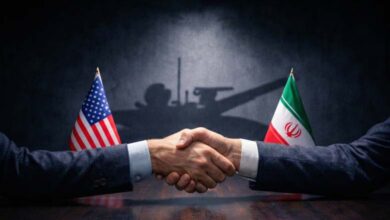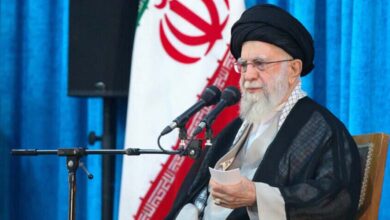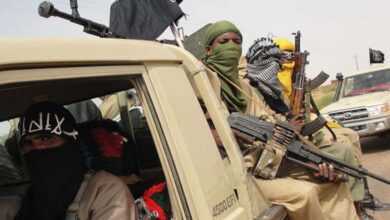U.S. Moves to Sanction Baghdad Over Iranian Influence

Two Republican lawmakers are calling for a full reassessment of relations with Baghdad and the suspension of all U.S. aid to the Iraqi government until serious steps are taken to “curb Iranian dominance.”
U.S. decision-makers view Iran’s influence over Iraq as a multi-level threat to American interests, especially as Baghdad shows little effort to break free from Tehran’s grip. Two Republican members of the U.S. House of Representatives have called for immediate sanctions against Iraq, accusing the Iraqi government of being in “complete submission to Iranian influence” and turning the country into “a puppet in Tehran’s hands.”
-
Washington Maintains Oil Partnership with Erbil Despite Disputes with Baghdad
-
Qaani in Baghdad to Impose Iranian Agendas on the Arab Summit
Iran exerts direct influence over several political blocs in the Iraqi Parliament, plays a role in forming governments and selecting prime ministers, and wields significant security and military influence through the Iran-backed Popular Mobilization Forces (PMF), now integrated into Iraq’s official forces. Iran’s cultural and religious influence is also prominent, managing many religious institutions in Karbala and Najaf, and impacting key religious schools and cultural centers.
Iraq’s markets heavily depend on Iranian products—from electricity to food supplies—while Iranian companies are active in infrastructure and energy projects, limiting Iraq’s ability to build an independent and diversified economy. From Washington’s perspective, this situation poses a long-term threat to Iraq’s economic sovereignty and hinders efforts to economically isolate Iran.
-
Iranian Interests Behind the Coordination Framework’s Persistence in Expelling U.S. Forces from Iraq
-
Iran Trains al-Assad Loyalists in Iraqi Camps to Destabilize Syria
In a letter to U.S. Secretary of State Antony Blinken, Representatives Joe Wilson (South Carolina) and Greg Steube (Florida) called for a “comprehensive reassessment of U.S.-Iraq relations,” urging a freeze on all American aid to the Iraqi government until serious action is taken to “curtail Iranian hegemony.”
The lawmakers stated that “Iran effectively controls the Iraqi government and large parts of its security apparatus,” adding that continued U.S. support for Baghdad amounts to “a betrayal of the sacrifice of more than 4,400 American troops killed since 2003.”
-
Khamenei, Iran’s Illness and the Obstacle to Any Agreement with Washington
-
Iran Reshuffles Its Proxies in Yemen and Iraq amid U.S. Strikes
They blamed former President Barack Obama’s administration for “empowering Iran in Iraq” by supporting ex-Prime Minister Nouri al-Maliki and allowing Iranian-backed militias to expand under the pretext of fighting ISIS.
The current U.S. policy toward Baghdad, they argued, represents a “strategic failure,” and called for a tougher approach to limit Iranian influence not just in Iraq but across the region.
Washington believes Iran plays a decisive role in shaping Iraqi governments, often pressuring Shiite parties to appoint loyalists to key positions like the prime minister and interior minister. This political interference undermines Iraq’s sovereign decision-making and sidelines U.S. influence.
-
Iran intercepts U.S. spy plane amid continued state of maximum alert
-
Washington Wields the Maximum Pressure Card against Baghdad
The presence of Iran-aligned armed groups such as Asa’ib Ahl al-Haq and Kataib Hezbollah poses a direct threat to U.S. interests in Iraq. These militias are not only active militarily but also wield political influence and control over some security institutions. They have been responsible for repeated attacks on U.S. bases, which Washington considers a red line violation.
Many argue that Iraq has lost part of its sovereignty due to its dependence on foreign powers, primarily Iran. This influence has led to internal divisions and escalated sectarian and political tensions.
Iraq faces international pressure over its close ties to Tehran, particularly from the United States and Gulf countries.
-
Iran Threatens to Carry Out Strikes in the Kurdistan Region
-
Iran Authorizes Al-Sudani to Decide the Fate of Iraqi Factions Loyal to It
Washington has imposed sanctions on Iran-linked Iraqi figures and entities, and exerted diplomatic pressure on Baghdad to limit cooperation with Tehran in energy and security sectors.
The U.S. has also tried to strengthen some Iraqi institutions—especially the Counter-Terrorism Service—to reduce reliance on pro-Iranian militias, while seeking alliances with moderate and secular forces in Parliament.
Iran’s dominance in Iraq is not merely political or religious; it is a complex reality rooted in mutual interests and regional conflicts. For true independence, Iraq must strengthen its institutions, build autonomous national decision-making, and balance its foreign relations in a way that puts its own interests first.












